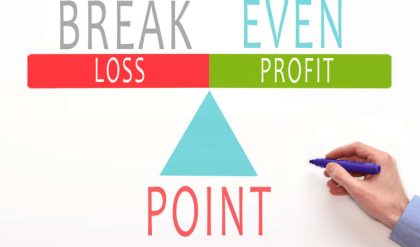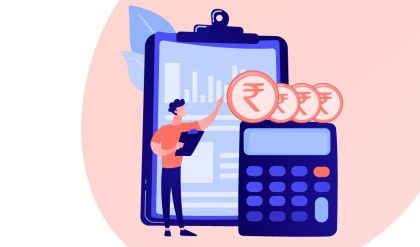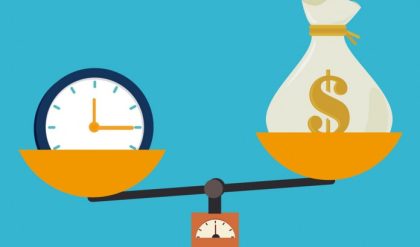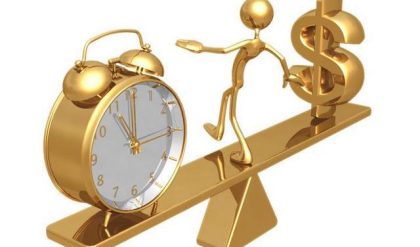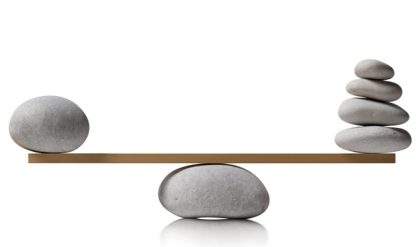Introduction Definitions and Basics
● Business Cycles, from the Concise Encyclopedia of Economics
● The United States and all other modern industrial economies experience significant swings in economic activity. In some years most industries are booming and unemployment is low; in other years most industries are operating well below capacity and unemployment is high. Periods of economic expansion are typically called booms; periods of economic decline are called recessions or depressions. The combination of booms and recessions, the ebb and flow of economic activity, is called the business cycle….
● Recessions, from the Concise Encyclopedia of Economics
● One of the most popular definitions of recessions is that they are periods when real gross national product (GNP) has declined for at least two consecutive quarters. In 1990, real GNP declined between the third and fourth quarters and again between the fourth quarter of 1990 and the first quarter of 1991. Hence, there is general agreement that a recession did occur….
● Great Depression, from the Concise Encyclopedia of Economics
● A worldwide depression struck countries with market economies at the end of the 1920s. Although the Great Depression was relatively mild in some countries, it was severe in others, particularly in the United States, where, at its nadir in 1933, 25 percent of all workers and 37 percent of all nonfarm workers were completely out of work. Some people starved; many others lost their farms and homes. Homeless vagabonds sneaked aboard the freight trains that crossed the nation. Dispossessed cotton farmers, the “Okies,” stuffed their possessions into dilapidated Model Ts and migrated to California in the false hope that the posters about plentiful jobs were true. Although the U.S. economy began to recover in the second quarter of 1933, the recovery largely stalled for most of 1934 and 1935….
● Bubbles, from the Concise Encyclopedia of Economics
● What Are Bubbles? In 1996, the fledgling portal Yahoo.com made its stock-market debut. This was during a time of great excitement–as well as uncertainty–about the prosperous “new economy” that the rapidly expanding Internet promised. By the beginning of the year 2000, Yahoo shares were trading at $240 each. Exactly one year later, however, Yahoo’s stock sold for only $30 per share….
● Fiscal Policy, from the Concise Encyclopedia of Economics
● Fiscal policy is the use of government spending and taxation to influence the economy. When the government decides on the goods and services it purchases, the transfer payments it distributes, or the taxes it collects, it is engaging in fiscal policy….
● Fiscal policy is said to be tight or contractionary when revenue is higher than spending (i.e., the government budget is in surplus) and loose or expansionary when spending is higher than revenue (i.e., the budget is in deficit). Often, the focus is not on the level of the deficit, but on the change in the deficit. Thus, a reduction of the deficit from $200 billion to $100 billion is said to be contractionary fiscal policy, even though the budget is still in deficit….
● Monetary Policy, from the Concise Encyclopedia of Economics
● … Central banks are powerful everywhere, although few are as independent of their governments as the Fed is of Congress and the White House. Central bank actions are the most important government policies affecting economic activity from quarter to quarter or year to year….
● Monetary policies are demand-side macroeconomic policies. They work by stimulating or discouraging spending on goods and services. Economy-wide recessions and booms reflect fluctuations in aggregate demand rather than in the economy’s productive capacity. Monetary policy tries to damp, perhaps even eliminate, those fluctuations.
● Bank Runs, from the Concise Encyclopedia of Economics
● A run on a bank occurs when a large number of depositors, fearing that their bank will be unable to repay their deposits in full and on time, simultaneously try to withdraw their funds immediately. This may create a problem because banks keep only a small fraction of deposits on hand in cash; they lend out the majority of deposits to borrowers or use the funds to purchase other interest-bearing assets such as government securities. When a run comes, a bank must quickly increase its cash to meet depositors’ demands. It does so primarily by selling assets, often hastily and at fire-sale prices. As banks hold little capital and are highly leveraged, losses on these sales can drive a bank into insolvency….
● Unemployment, from the Concise Encyclopedia of Economics
● Few economic indicators are of more concern to Americans than unemployment statistics. Reports that unemployment rates are dropping make us happy; reports to the contrary make us anxious. But just what do unemployment figures tell us? Are they reliable measures? What influences joblessness?…
In the News and Examples
● What caused the recent recession? What are the proposed cures? See this special College Topics page: Financial Crisis of 2008.
● Every idea or theory put forth as a cause for this most recent 2008 recession, or any other business recession, contains an implicit recommendation for a cure. The hard part for someone who puts forth an idea, theory, or recommendation is to show that that idea is important enough to matter or to resolve the problem–either for the recent 2008 crisis or more generally other economic crises or recessions….
● Eric Rauchway on the Great Depression and the New Deal, podcast on EconTalk. Dec. 1, 2008.
● Eric Rauchway of the University of California at Davis and the author of The Great Depression and the New Deal: A Very Short Introduction, talks with EconTalk host Russ Roberts about the 1920s and the lead-up to the Great Depression, Hoover’s policies, and the New Deal. They discuss which policies remained after the recovery and what we might learn today from the policies of the past….
● Quiggin on Zombie Economics. EconTalk podcast.
● John Quiggin of Crooked Timber and the author of Zombie Economics talks with EconTalk host Russ Roberts about ideas in economics that should stay dead and buried. Quiggin argues that many economic theories such as the Great Moderation, the efficient markets hypothesis and others have been discredited by recent events and should be relegated to the graveyard. Roberts challenges some of Quiggin’s claims and wonders whether proposed alternatives might do even worse than the policies Quiggin is criticizing. Much of the conversation focuses on the role of government in the financial sector and how that might be improved going forward.
● Robert Higgs on the Great Depression, podcast on EconTalk. Dec. 15, 2008.
● Robert Higgs, of the Independent Institute, talks with EconTalk host Russ Roberts about the Great Depression, the New Deal, and the effect of World War II on the American economy. Using survey results, financial data, and the pattern of investment in the 1930s, Higgs argues that New Deal policies created a climate of uncertainty that prolonged the Great Depression. Using consumption data, he argues that prosperity did not return during wartime, but rather after the war when government intervention in the economy subsided….
● Hoover’s Economic Policies, from the Concise Encyclopedia of Economics
● Many historians, most of the general public, and even many economists think of Herbert Hoover, the president who preceded Franklin D. Roosevelt, as a defender of laissez-faire economic policy. According to this view, Hoover’s dogmatic commitment to small government led him to stand by and do nothing while the economy collapsed in the wake of the 1929 stock market crash. The reality is quite different. Far from being a bystander, Hoover actively intervened in the economy, advocating and implementing polices that were quite similar to those that Franklin Roosevelt later implemented. Moreover, many of Hoover’s interventions, like those of his successor, caused the Great Depression to be “great”–that is, to last a long time….
● Rustici on Smoot-Hawley and the Great Depression, podcast on EconTalk.
● Thomas Rustici of George Mason University and author of Lessons from the Great Depression talks with EconTalk host Russ Roberts about the impact of the Smoot-Hawley Act on the economy. The standard view is that the decrease in trade that followed Smoot-Hawley was not big enough to be a significant contributor to the Great Depression. Rustici argues that this Keynesian approach that looks at aggregate spending misses a crucial mechanism for understanding the impact of Smoot-Hawley. Rustici focuses on the impact of Smoot Hawley on bank closings and the money supply. Smoot-Hawley launched an international trade war that reduced world trade dramatically. This had large concentrated regional effects in the United States and around the world in areas that depended on trade. Those were the areas where the first banks collapsed, contracting the money supply via the fractional reserve banking system. Rustici argues that the Keynesian indictment of the price system ignores the policy failures that destroyed the institutions that make the price system work….
● Irwin on the Great Depression and the Gold Standard, podcast on EconTalk.
● Douglas Irwin of Dartmouth College talks with EconTalk host Russ Roberts about the role the gold standard played in the Great Depression. Irwin argues that France systematically accumulated large amounts of gold in the late 1920s and 1930s, imposing massive deflation on the rest of the world. Drawing on a recent paper of his, Irwin argues that France’s role in worldwide deflation was greater than that of the United States and played a significant role in the economic contraction that followed.
● How Depressing Was the Depression?, by Arnold Kling. Originally published by TCS Daily, April 27, 2007.
● I would have thought that 1929 should have looked pretty good to people living in the depths of the Depression. But one of the many interesting lessons of Amity Shlaes’ new history of the Great Depression and Franklin Roosevelt’s New Deal is that many Americans, both inside and outside the Roosevelt Administration, thought of prosperity as an aberration. Instead, they saw hard times as the new norm….
A Little History: Primary Sources and References
● Memoirs of Extraordinary Popular Delusions and the Madness of Crowds, by Charles Mackay.
● Specifically recommended:
○ Chapter 1 Money Mania.–The Mississippi Scheme
○ Chapter 2 The South-Sea Bubble
○ Chapter 3 The Tulipomania
John Maynard Keynes, biography from the Concise Encyclopedia of Economics
Advanced Resources
● What’s behind the slow U.S. economic recovery from the recent recession? Ohanian on the Great Recession and the Labor Market. EconTalk Podcast.
● Lee Ohanian of UCLA talks with EconTalk host Russ Roberts about the recession, the recovery, and the state of labor market. Ohanian describes the unusual aspects of this recession and recovery in the United States as shown by the labor market and the unusual performance of hours worked, productivity, and wages. He also discusses the behavior of business investment and speculates as to why this recession and the recovery has been so different in the United States. The conversation closes with a discussion of the role of the foreclosure process in encouraging unemployment.
● Mulligan on Redistribution, Unemployment, and the Labor Market. Podcast on EconTalk, December 3, 2012.
● Casey Mulligan of the University of Chicago and the author of The Redistribution Recession, talks with EconTalk host Russ Roberts about the ideas in the book. Mulligan argues that increases in the benefits available to unemployed workers explains the depth of the Great Recession that began in 2007 and the slowness of the recovery particularly in the labor market. Mulligan argues that other macroeconomic explanations ignore the microeconomic incentives facing workers and employers.
● Selgin on Free Banking, podcast on EconTalk. Nov. 17, 2008.
● George Selgin of West Virginia University talks with EconTalk host Russ Roberts about free banking, where government treats banks as no different from other firms in the economy. Rather than rely on government guarantees to protect depositors (coupled with regulation), banks would compete with each other in offering security and return on deposits. Selgin draws on historical episodes of free banking, particularly in Scotland, to show that such a world need not be unduly hazardous or filled with bank runs. He also talks about Gresham’s Law and an episode in British history when banks successfully issued their own currency….
